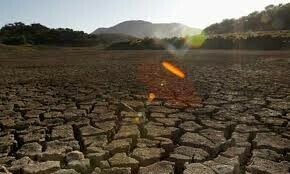LAHORE, Feb 9: The Punjab government has decided to cut its development spending for this fiscal year by Rs18 billion to Rs132 billion in line with a similar decision by Islamabad in view of the rising inflationary pressures on the national economy.
“We have decided to move all the projects that have yet to take off or are still passing through the process of approval to the next financial year,” a senior Punjab Planning & Development Department (P&D) official told this reporter on Saturday.
He, however, said the department would complete the process of approval of all the ‘deferred’ development projects and schemes before the current fiscal was out.
The federal government, which reduced its Public-Sector Development Programme (PSDP) of Rs520 billion earlier this week by a hefty Rs70-80 billion because of the resource crunch caused by the increasing size of the subsidy on domestic oil prices on account of escalating global crude market, had also asked the provinces to slash their annual development budgets. But it had not indicated any percentage or amount. All the provinces were asked to make adjustments in accordance with their needs and requirements.
The price inflation for the first half of the current fiscal year was recorded above eight per cent. The December inflation was slightly below nine per cent. When approached, Dr Ashfaque Hasan Khan, special secretary finance, had remarked to this reporter that “the people can’t eat cake and have it too”. That implied that the government would have to either raise the domestic oil prices or cut the development budget to narrow the widening resources gap that is threatening to expand the fiscal deficit to just below six per cent from the target of four per cent for the year.
Even after cutting the development spending, the government is not ruling out a spike in the domestic oil prices. Caretaker finance minister Dr Salman Shah has recently stated that the next government would have to raise the oil prices over a period of six months in order to recover the revenue losses suffered on account of subsidy. The government has not raised the oil prices since January 2007 when these were last revised down despite an increase of 76 per cent in the global crude prices.
The provincial P&D officials seem visibly relieved on reduction in the size of development spending for the year because of the problems being faced by them in its 100 per cent utilisation.
“We were facing serious capacity issues. The private sector in the province is not fully equipped and lacked skills to carry out such massive works,” an official said. He said it would take some time before the private sector developed skills and equipped itself to carry out large projects. Further, he said, the government was also finding it difficult to get materials like bitumen for its infrastructure projects due to shortages in the market.
It may be recalled that the Punjab government had increased the size of its annual development spending by Rs50 billion to Rs150 billion for this fiscal from Rs100 billion last year.















































Dear visitor, the comments section is undergoing an overhaul and will return soon.